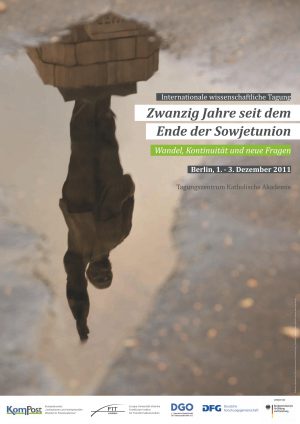Paper for the Workshop “Elite Networks in Russia and Ukraine. Change, Structures and Political Role”, , German Institute for International and Security Affairs (SWP), Berlin, 13-14 February 2014
Abstract
Business elites can be considered important advocates of Eurasian integration since neofunctionalist theory has assigned them a key role in the emergence of supranational EU governance structures. Do business elites in Russia articulate a demand for supranational policies that supports political elites in their efforts to create such structures? To examine this question, the paper firstly discusses existing political and economic rationales for the recent steps of integration. While political motives appear to prevail, plausible economic reasons can also be identified. The relevance of the economic rationales is further explored by studying whether and how Russian business elites assess the Eurasian Economic Union project. The paper finds that the Eurasian Economic Commission has sought to incorporate business representatives into its legislative procedure. However, major Russian business associations have devoted only selective and limited attention to Eurasian economic integration. There is empirical evidence that representatives of medium-technology industries outside the fuel sector most actively promote the project. In contrast, leading business representatives have revealed expectations of intergovernmentalist politics that are likely to impede a neofunctionalist mechanism of reinforcing Eurasian integration.
 The dissolution of the Soviet Union at the end of 1991 marked the collapse of a state, of an empire, and of a project of an alternative modernity. Initially, the collapse of the “Soviet civilization” seemed to provide an opportunity for the countries of the CEE and Eurasia to arrive in the West with its capitalist democracies, its liberal individualist values, and a global pax americana. History as a struggle between ideologies appeared to have reached its (liberal) end. This was an error of judgement, however. Since then, new, non-Western powers and global threats have emerged, and the historico-political region “Eastern Europe” has disappeared. Today, this region is more diverse than any other region in the world: while most of the countries of Central and Southeast Europe adapt successfully to the liberal standards of the West and are now members of the European Union, the post-Soviet states have embarked on a search for alternatives. Here, we encounter authoritarian and semi-authoritarian regimes and state-run capitalist economies, new regional cooperation and security alliances, as well as attempts to develop local models or to learn from other non-Western experiences, especially from China and the Asian “tigers”.
The dissolution of the Soviet Union at the end of 1991 marked the collapse of a state, of an empire, and of a project of an alternative modernity. Initially, the collapse of the “Soviet civilization” seemed to provide an opportunity for the countries of the CEE and Eurasia to arrive in the West with its capitalist democracies, its liberal individualist values, and a global pax americana. History as a struggle between ideologies appeared to have reached its (liberal) end. This was an error of judgement, however. Since then, new, non-Western powers and global threats have emerged, and the historico-political region “Eastern Europe” has disappeared. Today, this region is more diverse than any other region in the world: while most of the countries of Central and Southeast Europe adapt successfully to the liberal standards of the West and are now members of the European Union, the post-Soviet states have embarked on a search for alternatives. Here, we encounter authoritarian and semi-authoritarian regimes and state-run capitalist economies, new regional cooperation and security alliances, as well as attempts to develop local models or to learn from other non-Western experiences, especially from China and the Asian “tigers”.